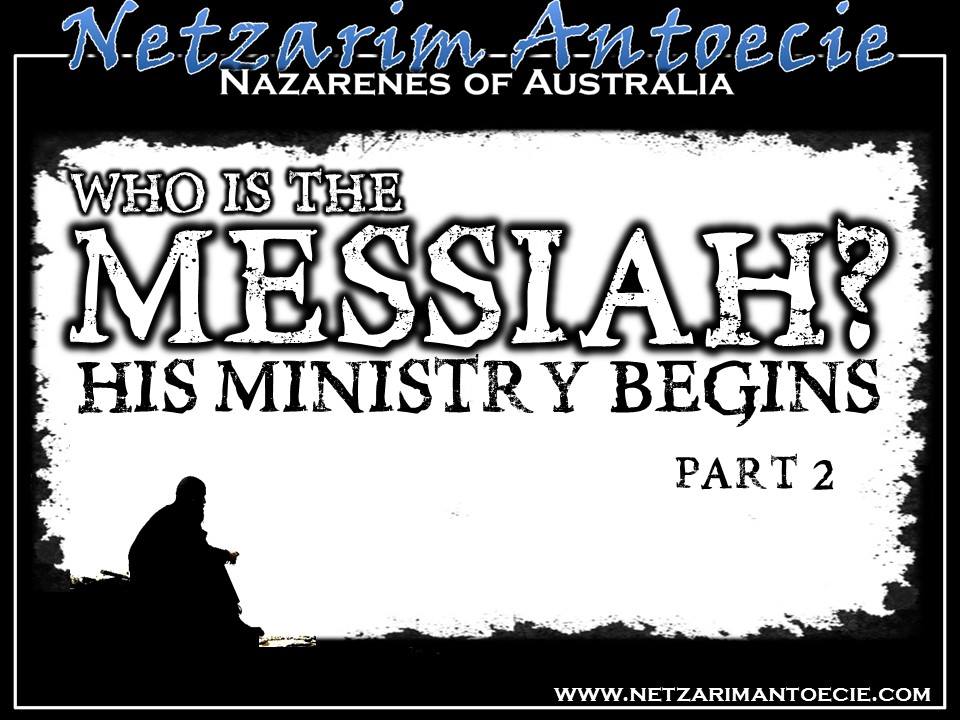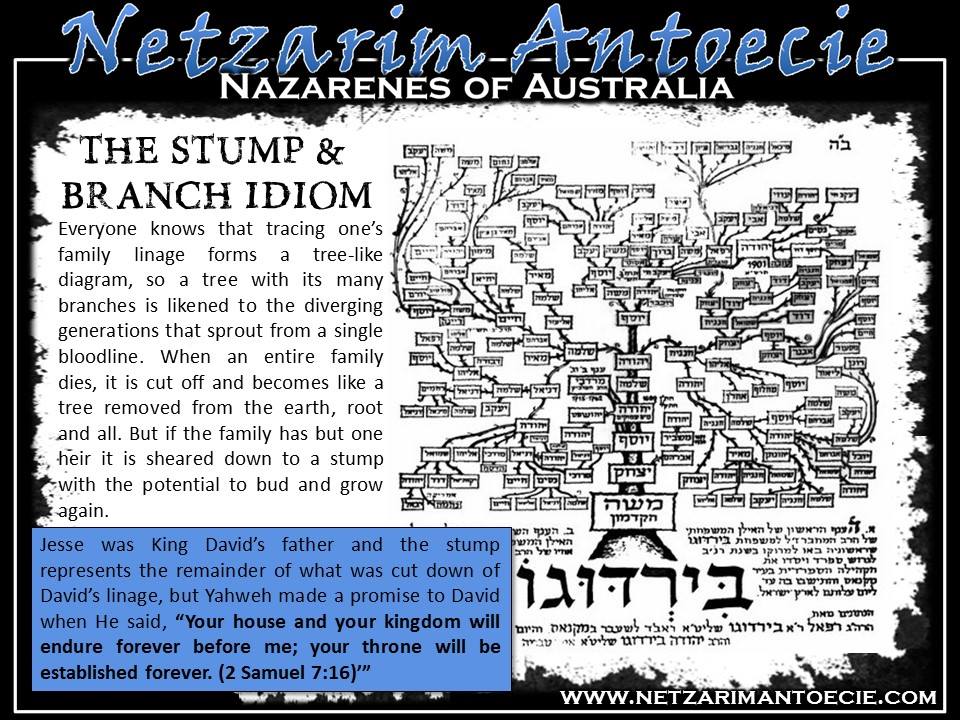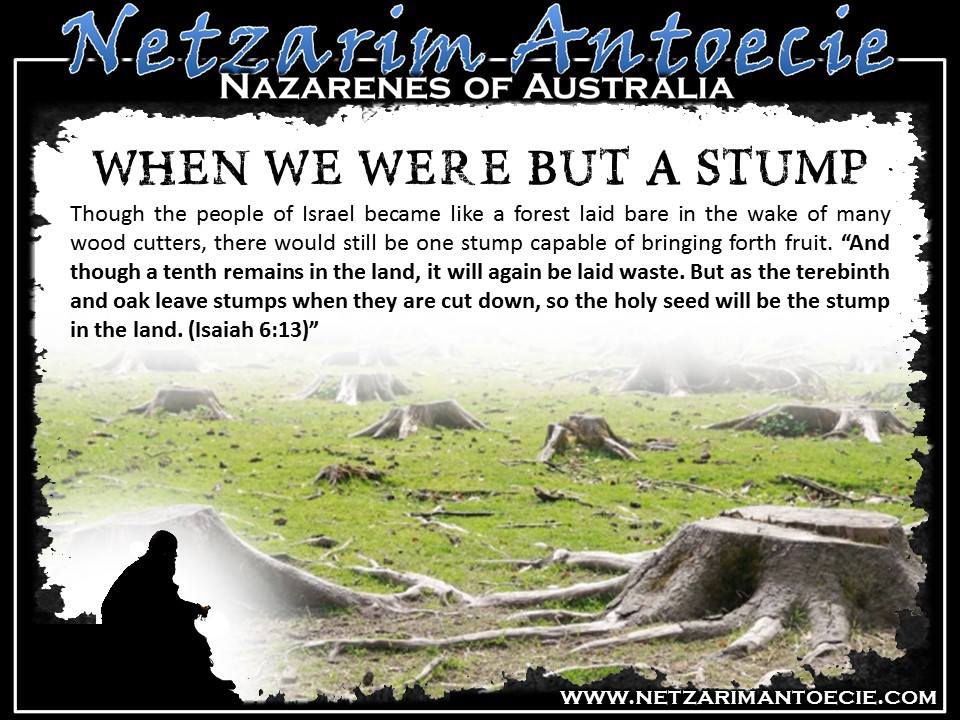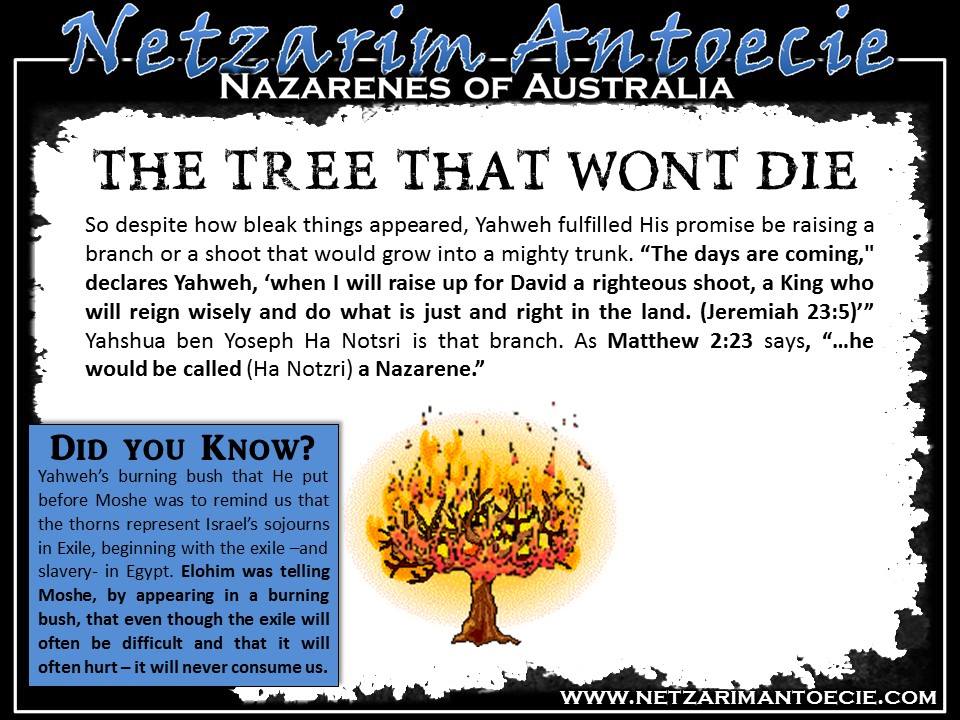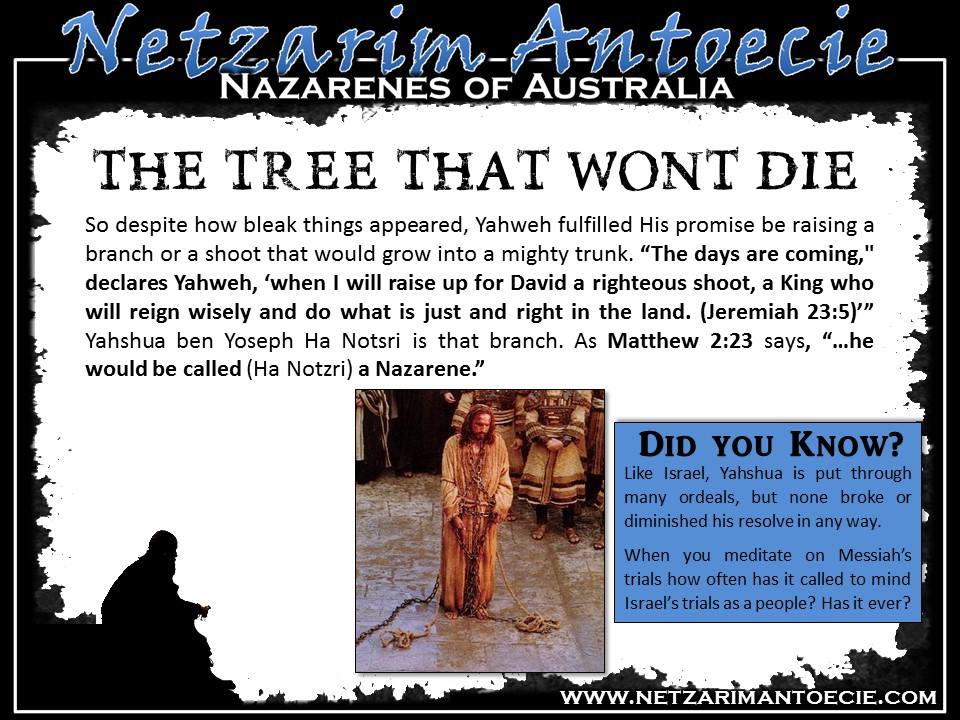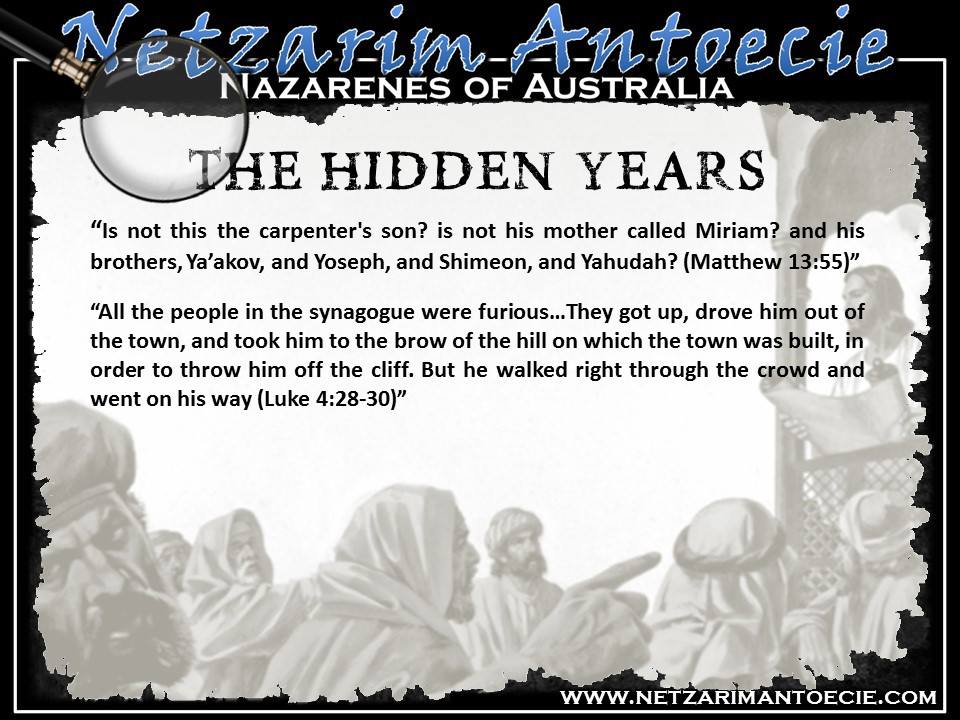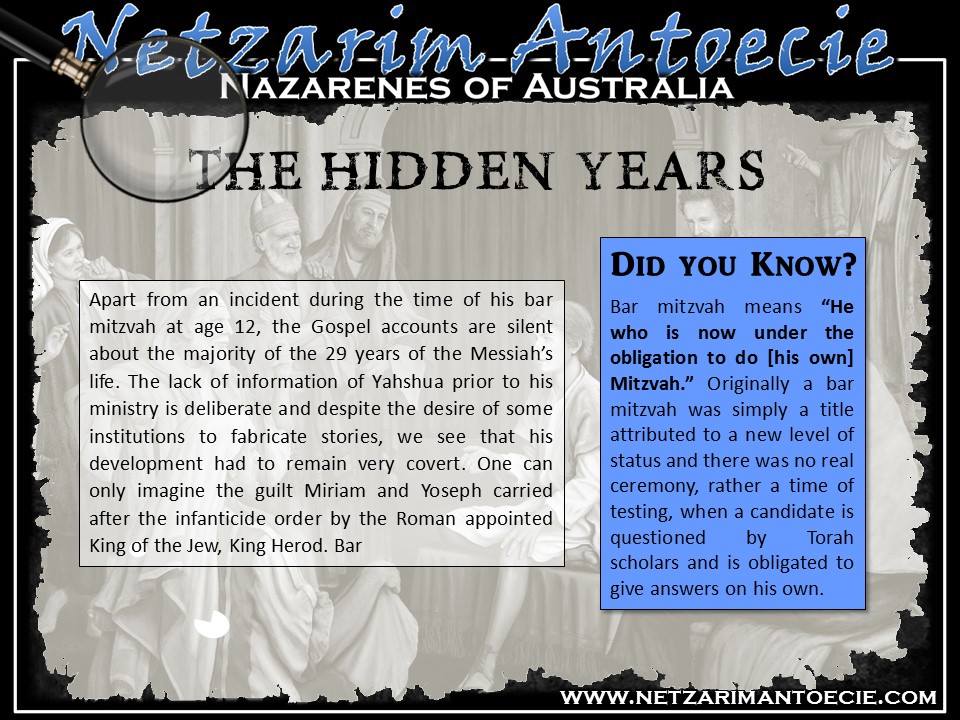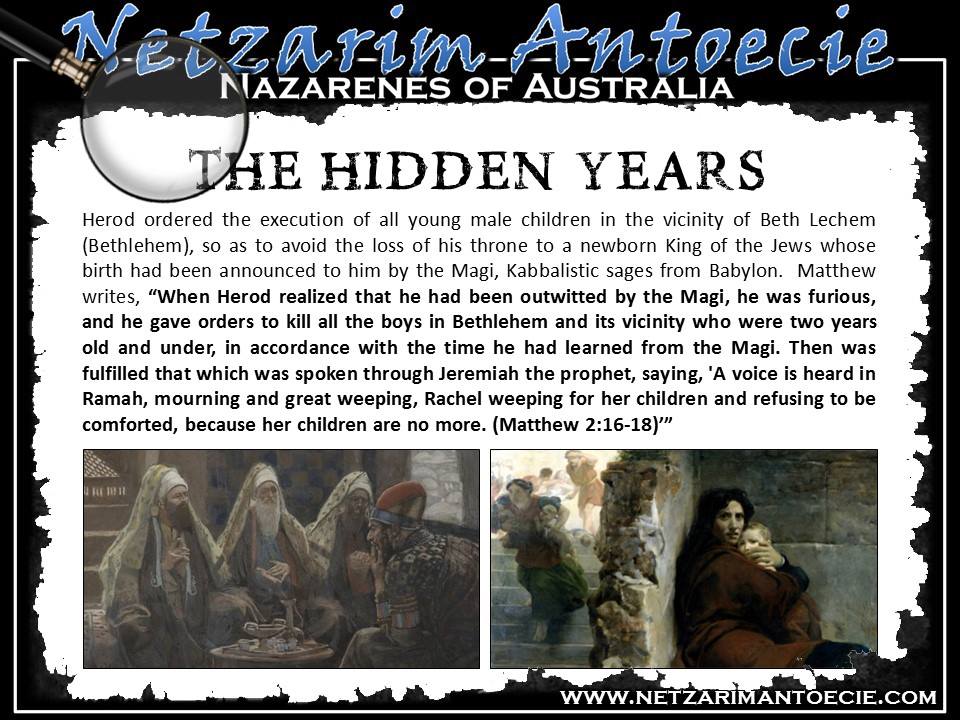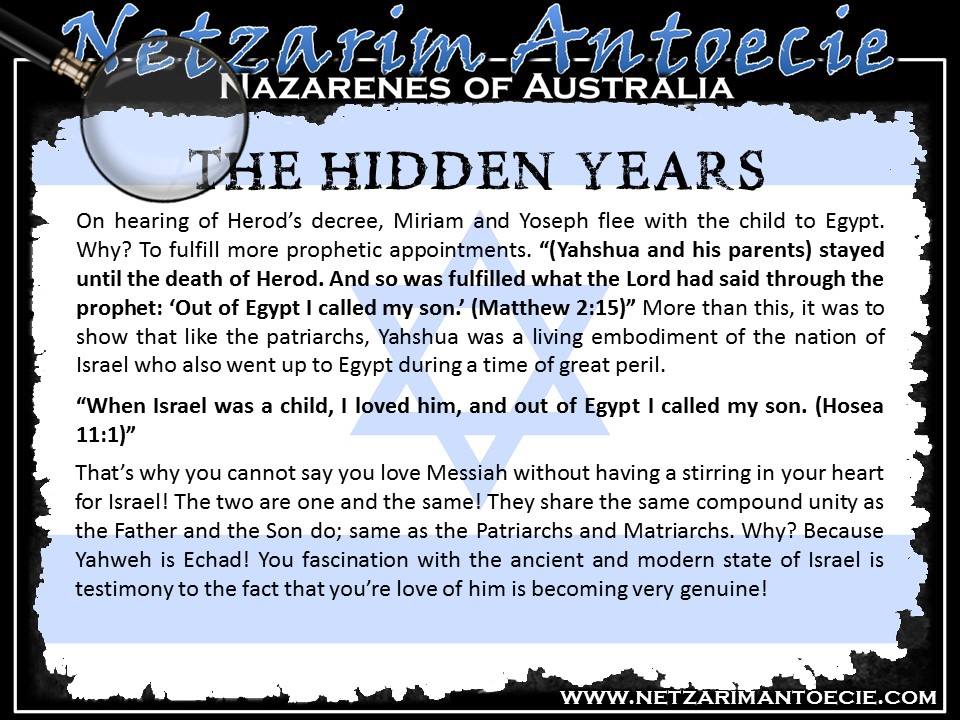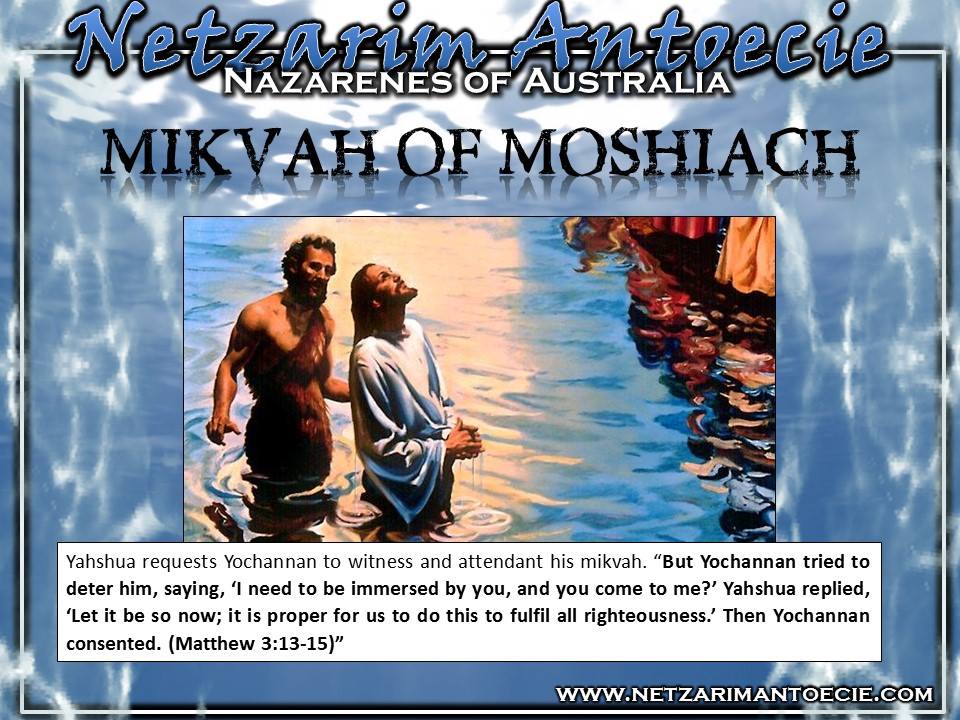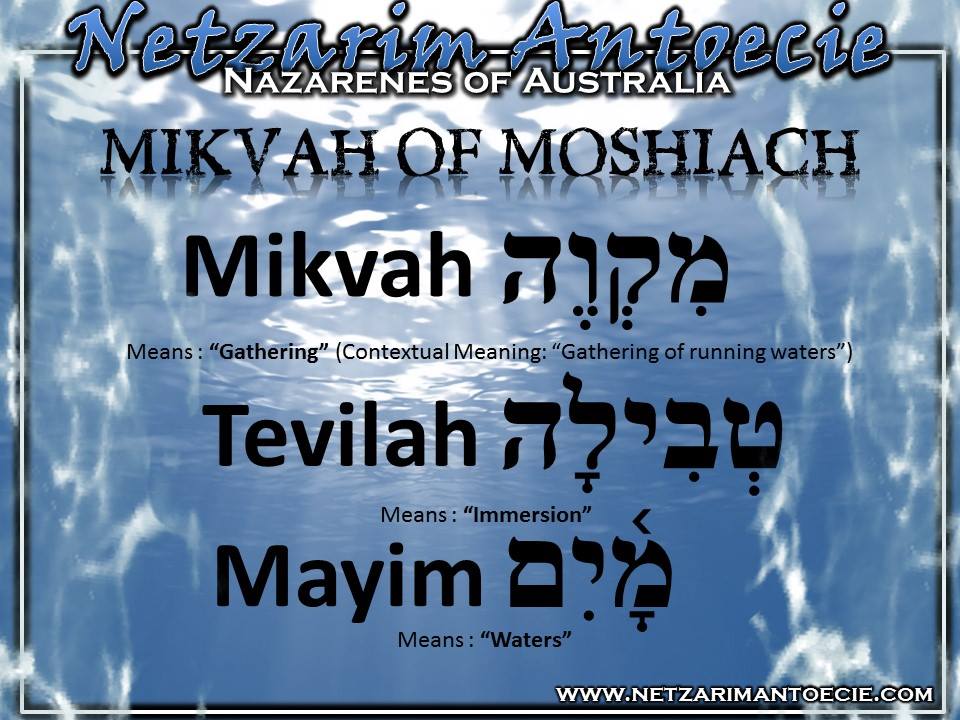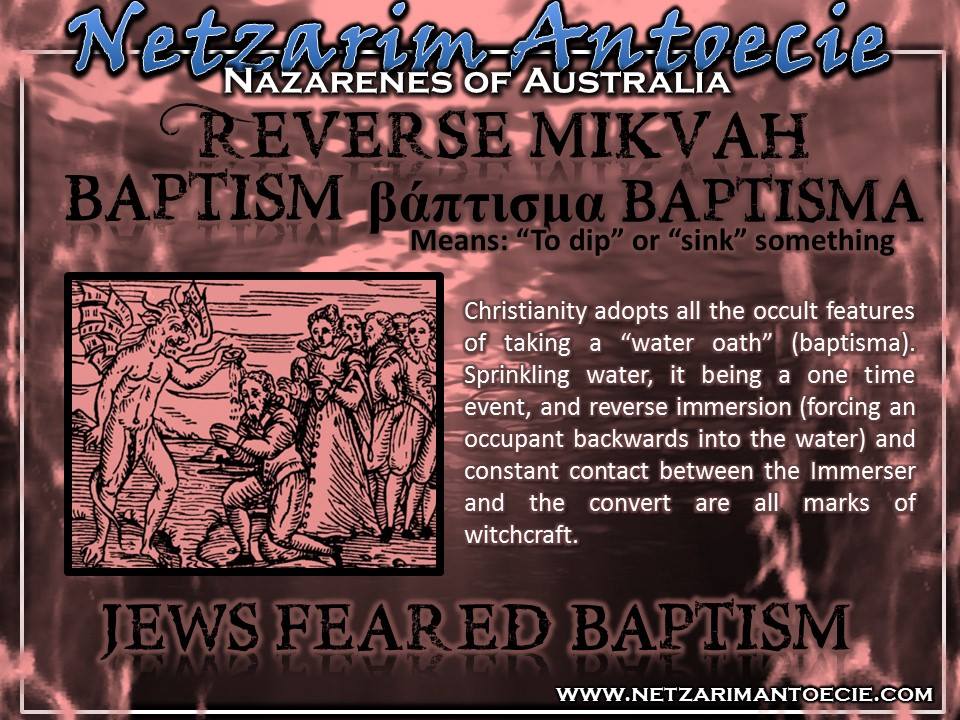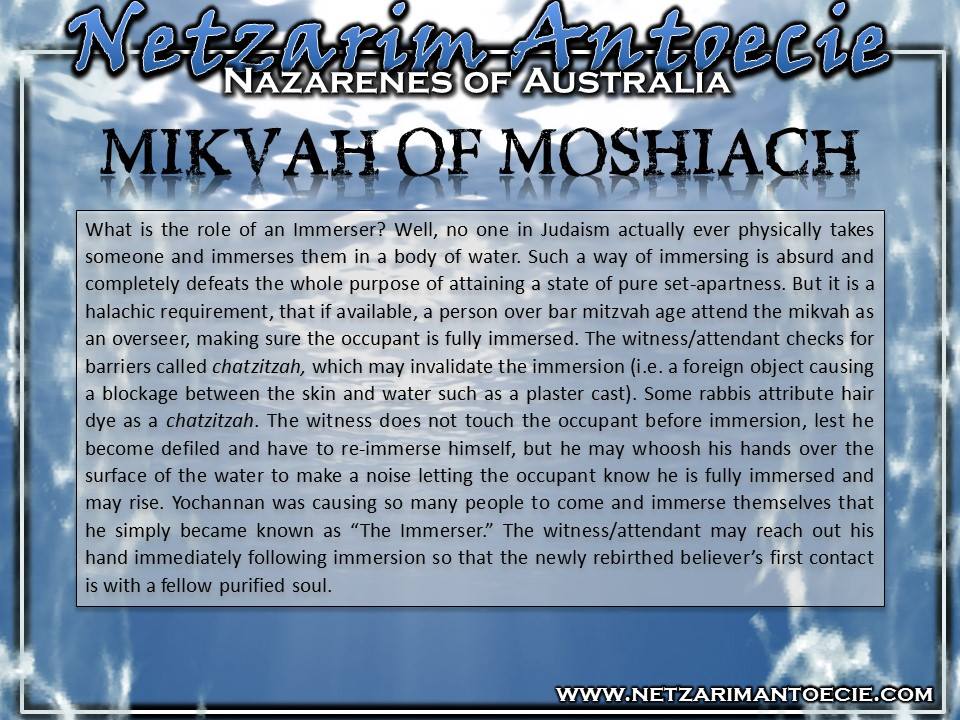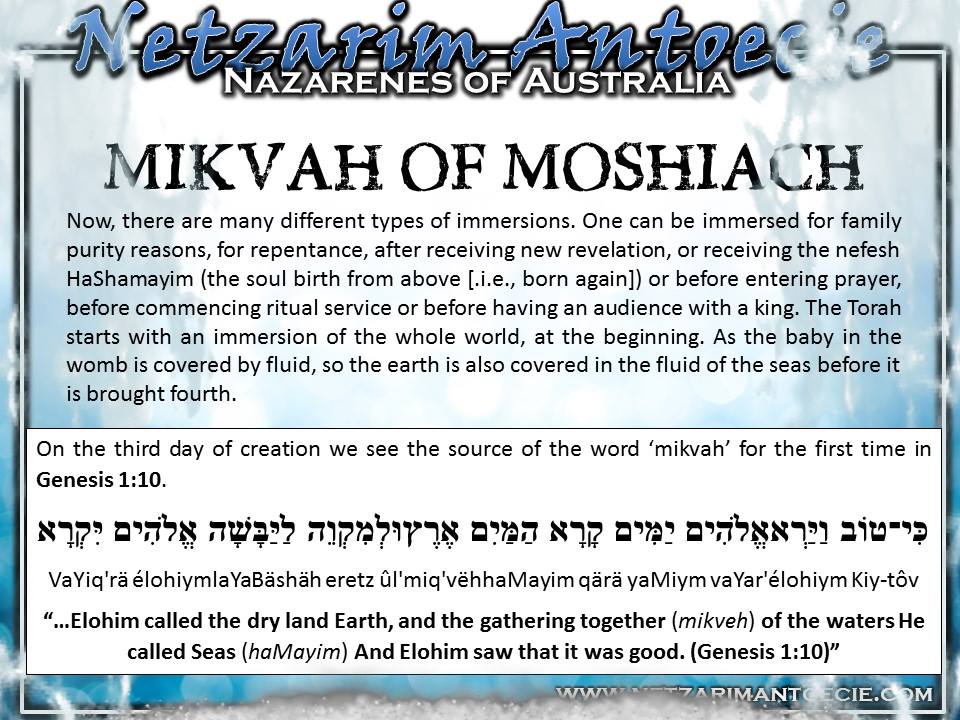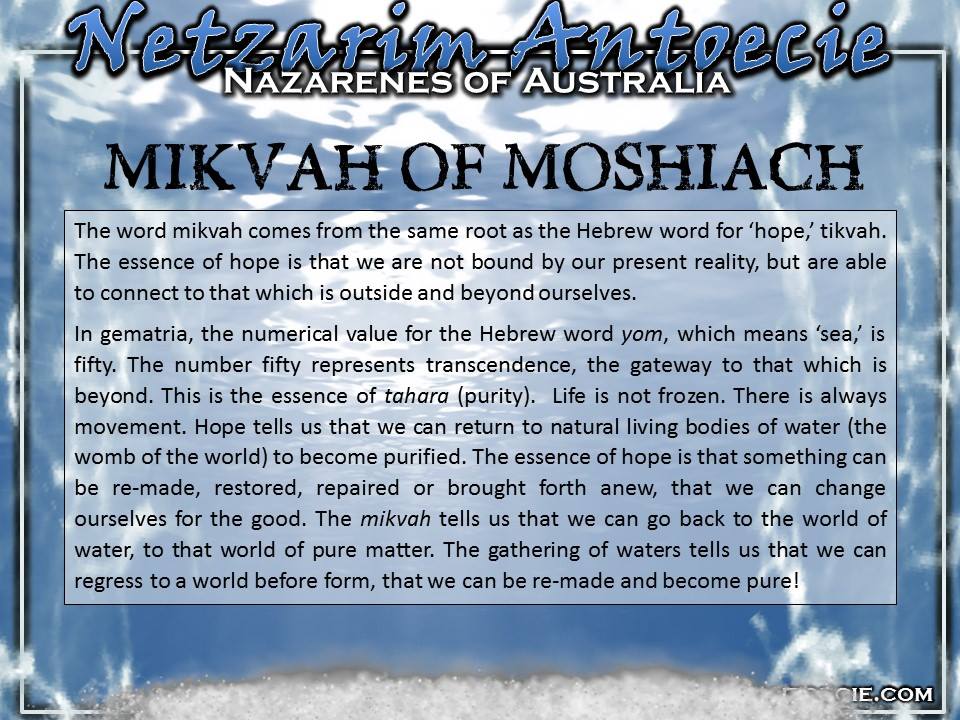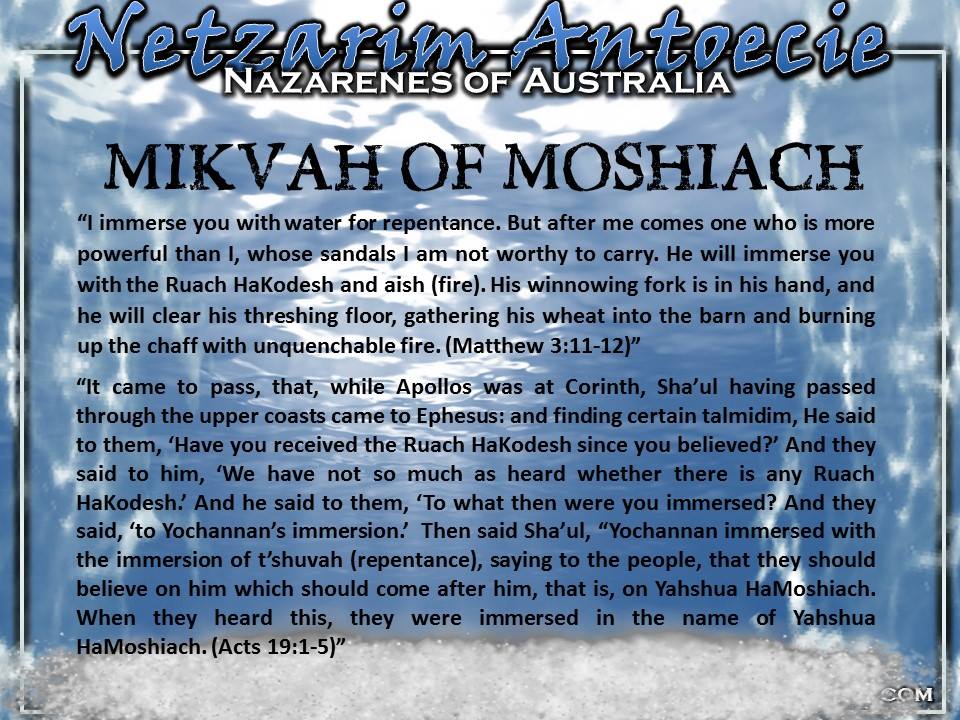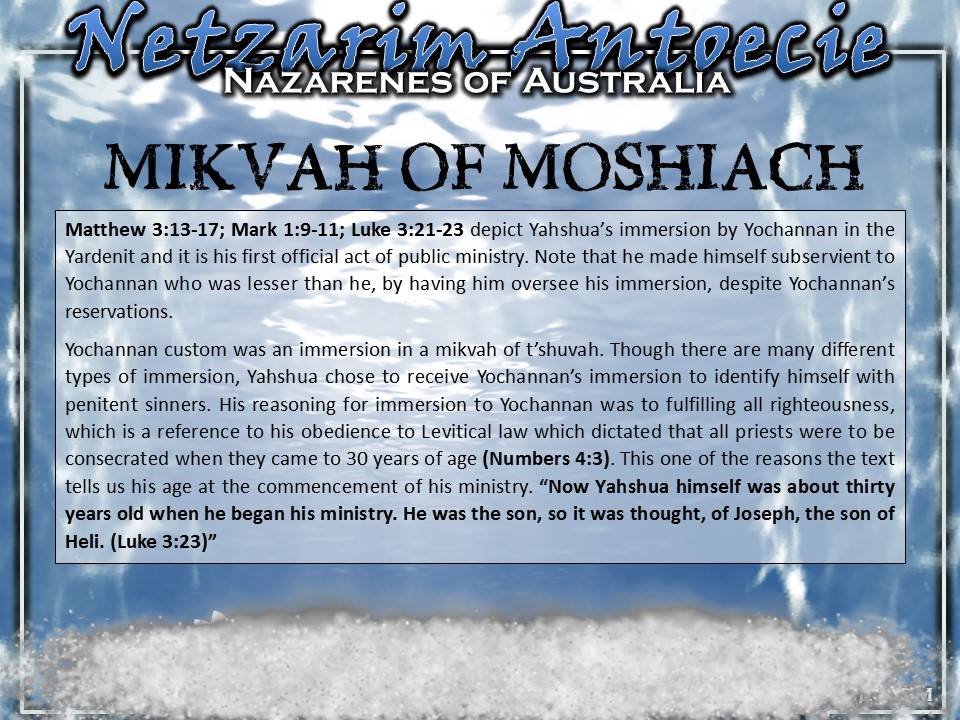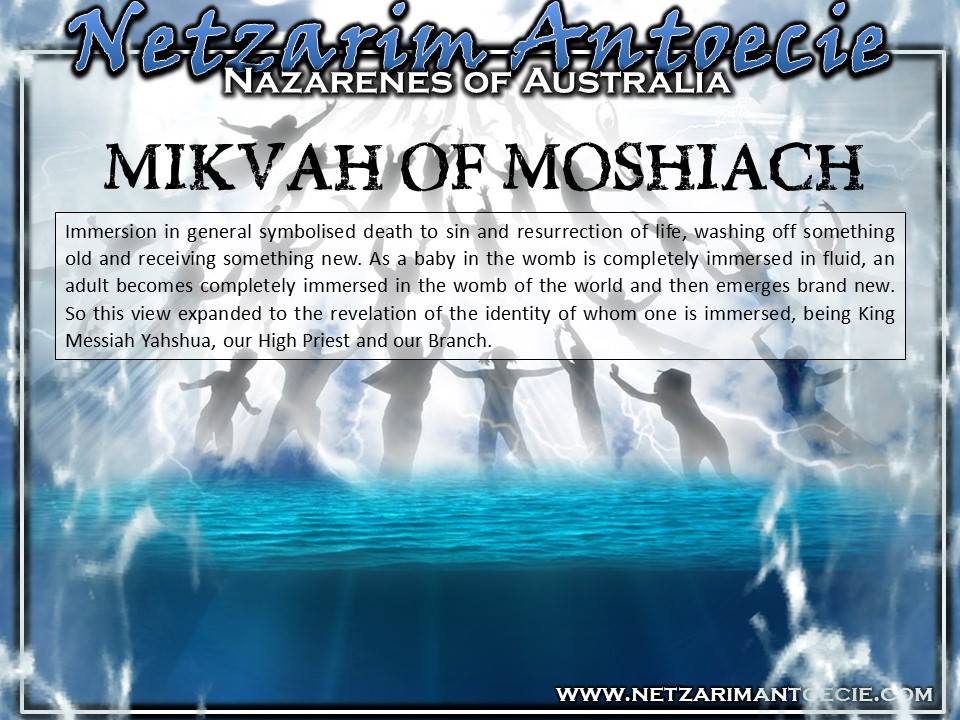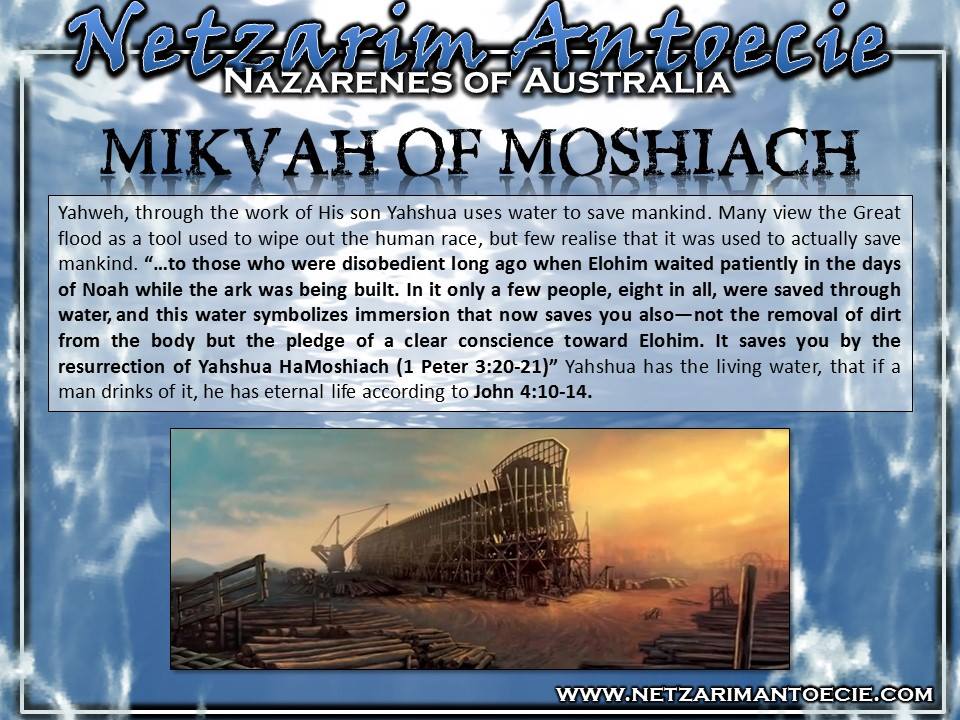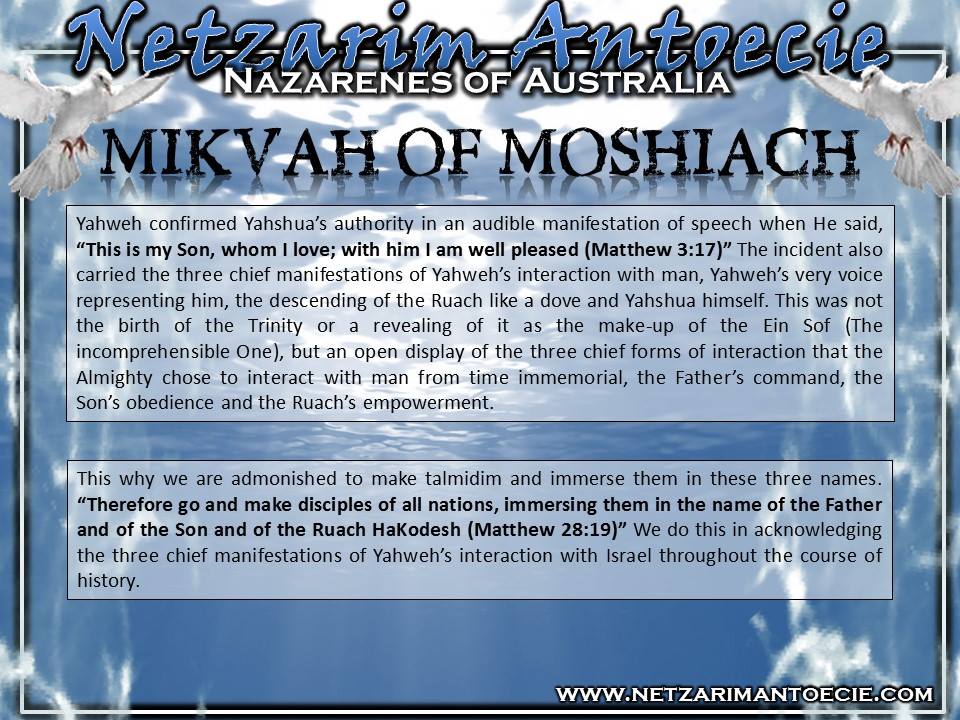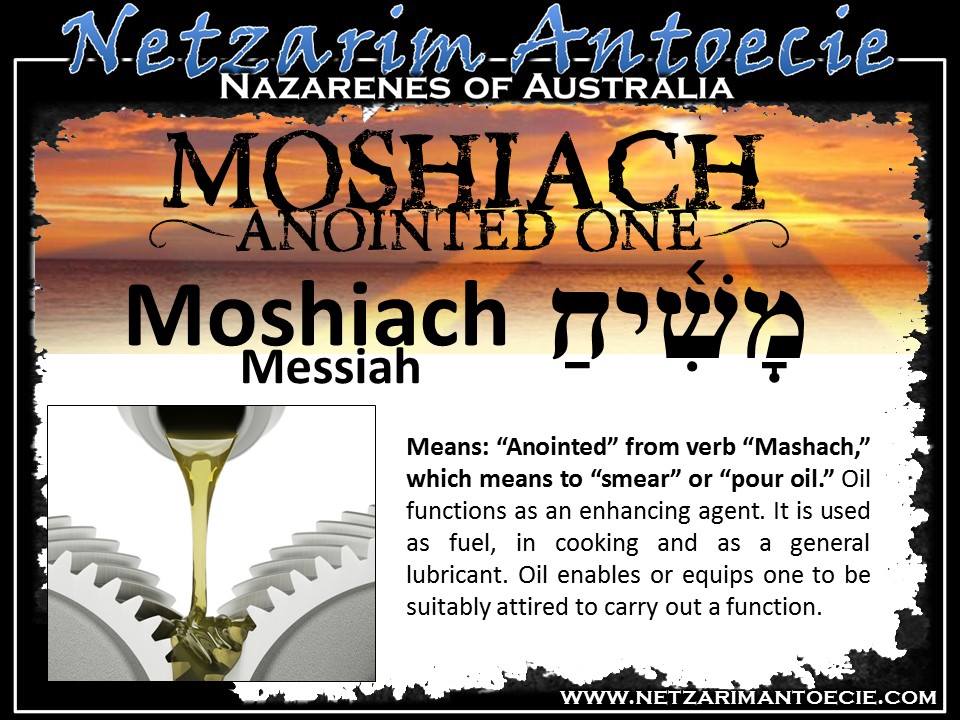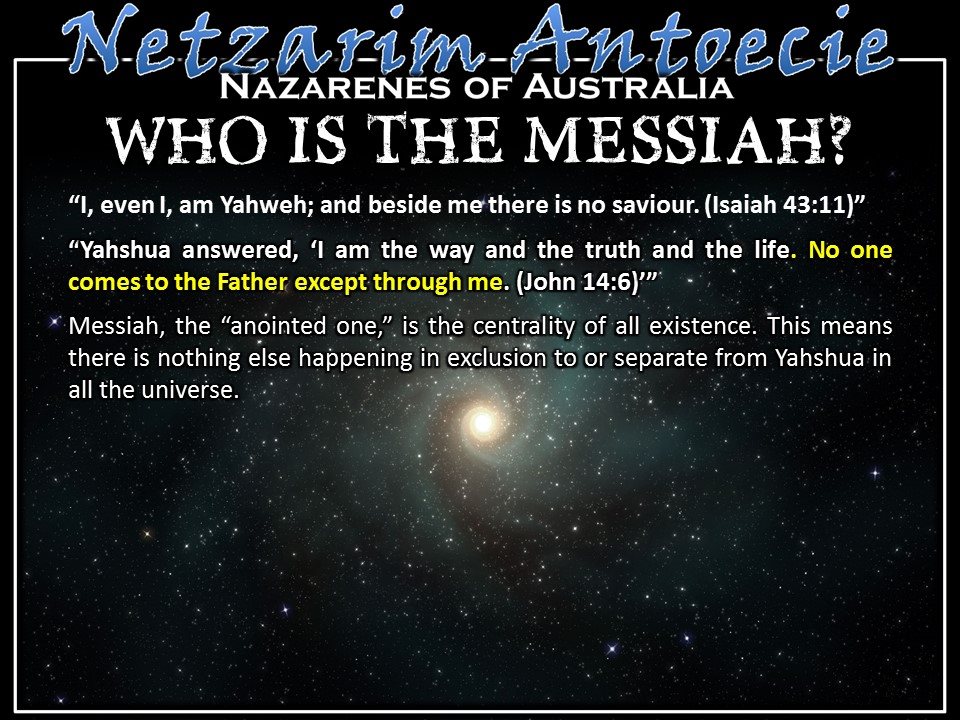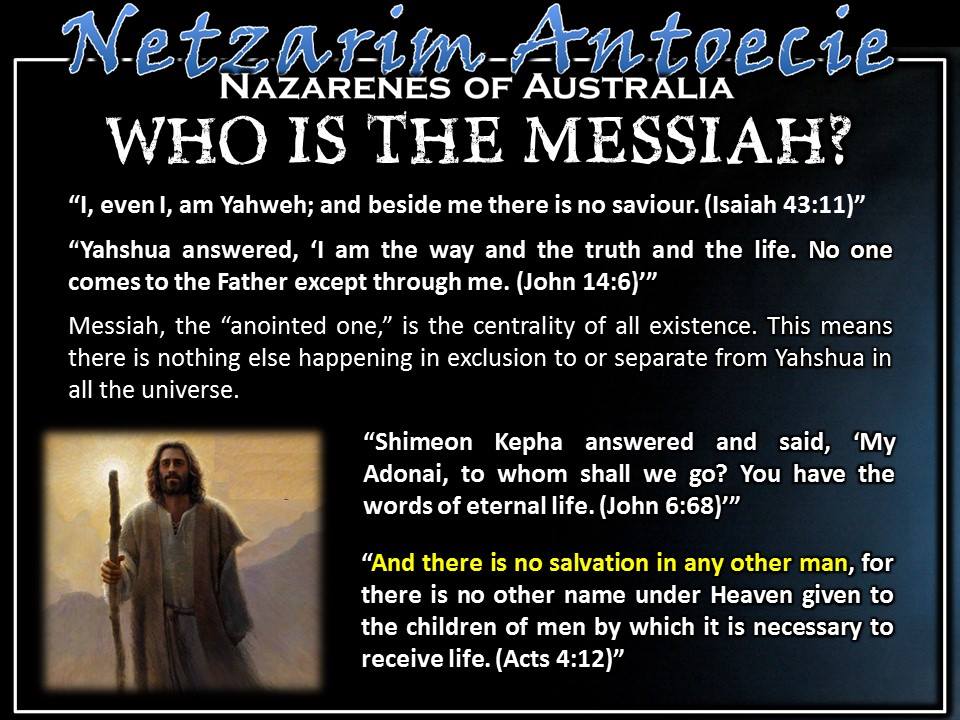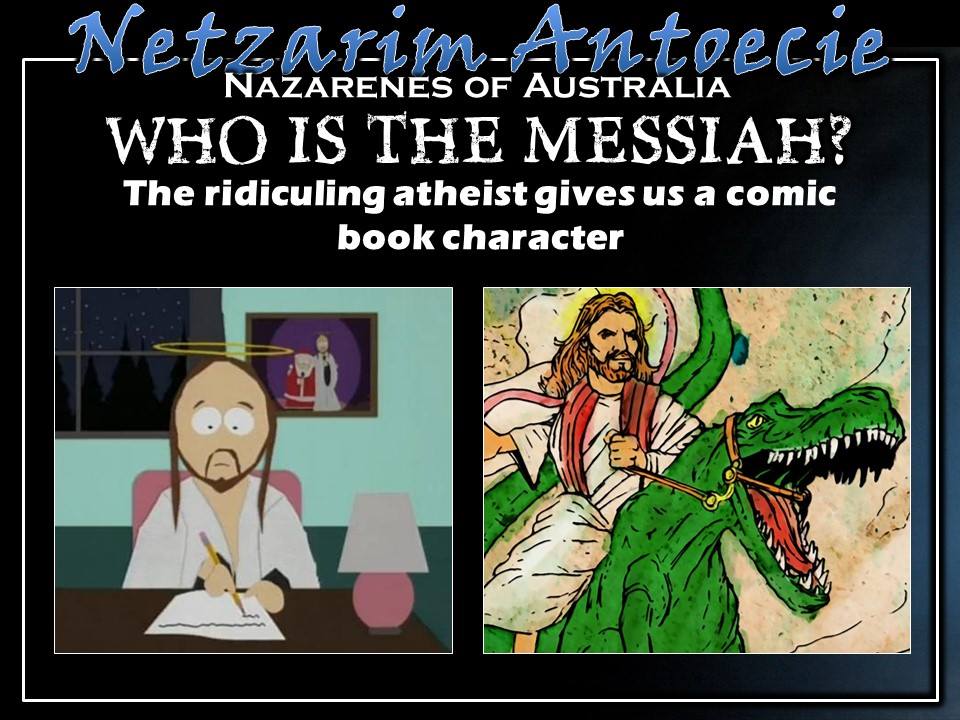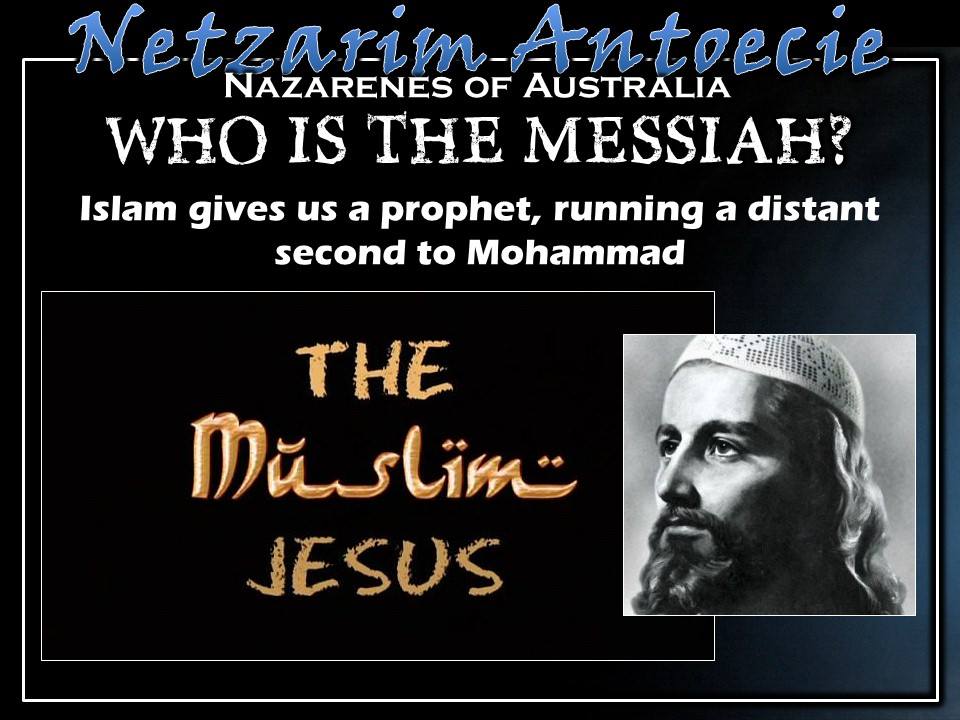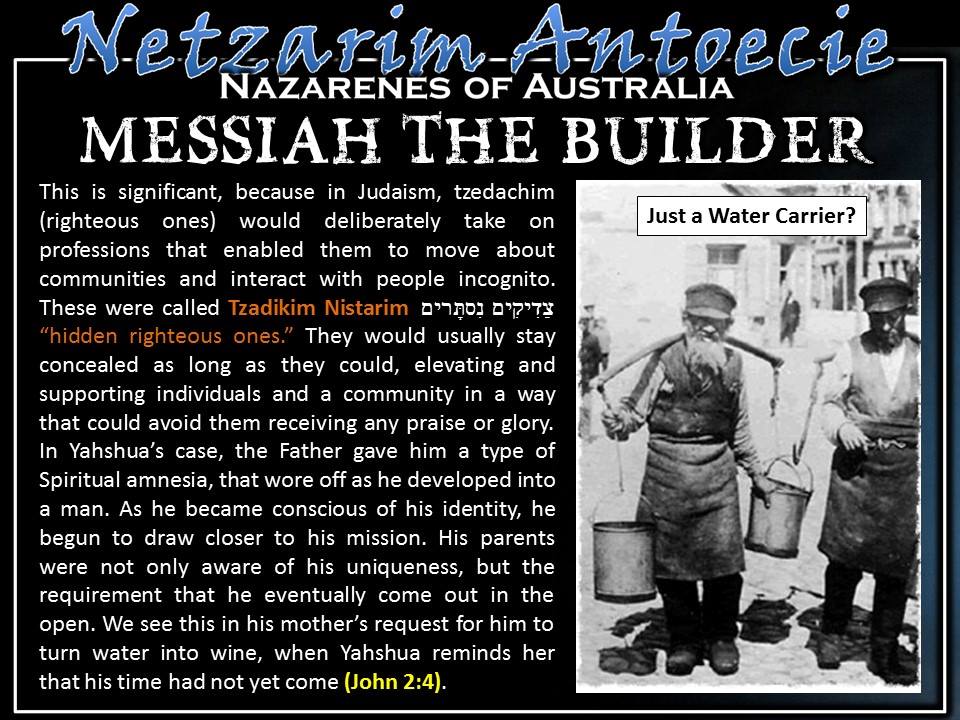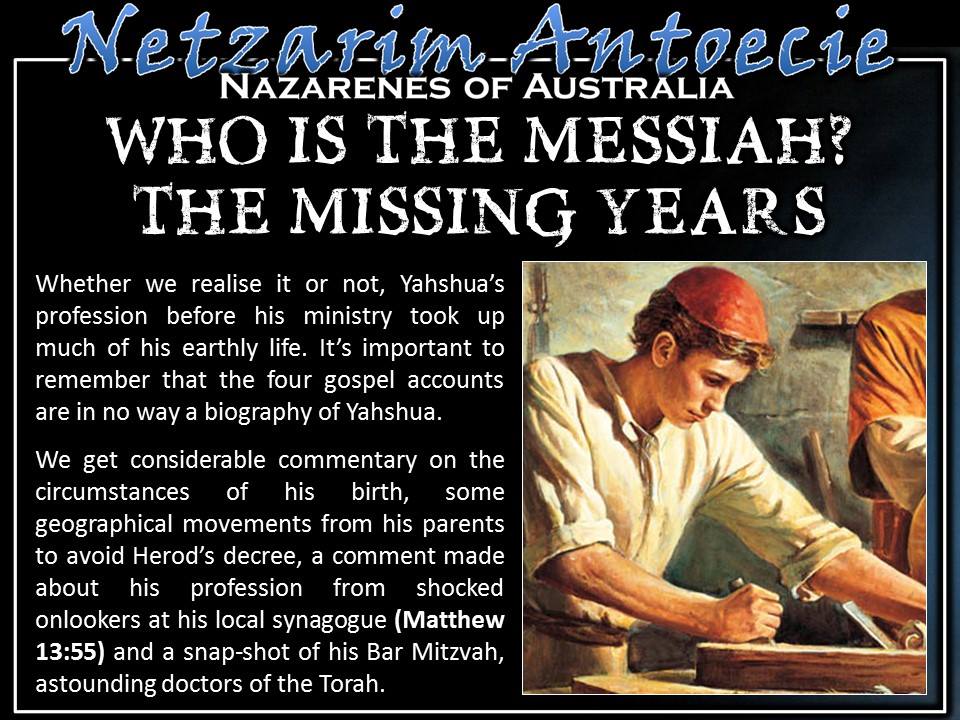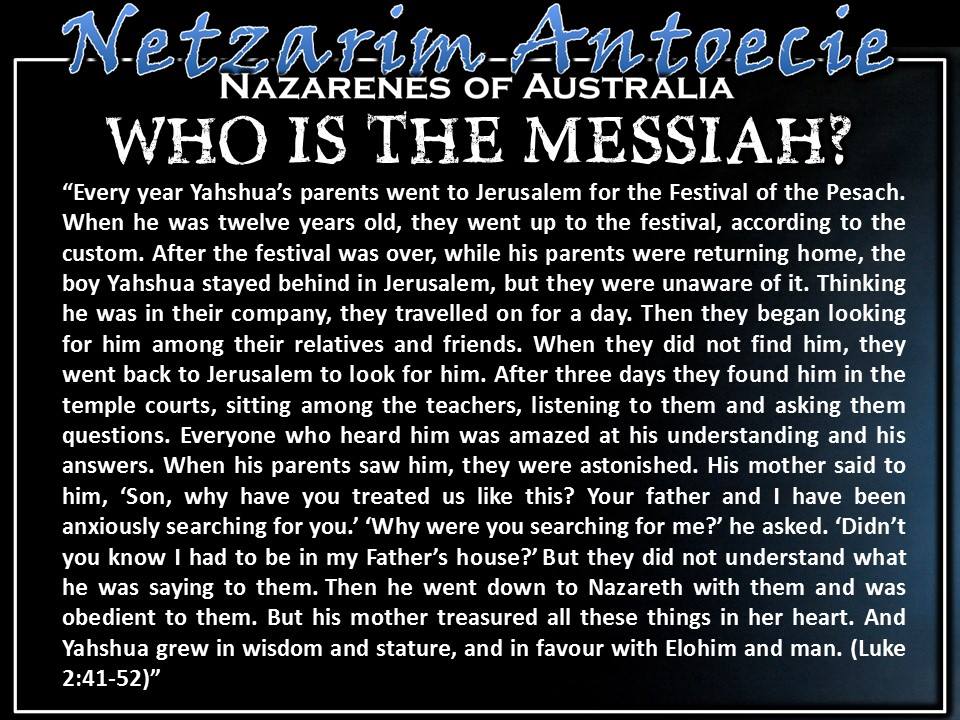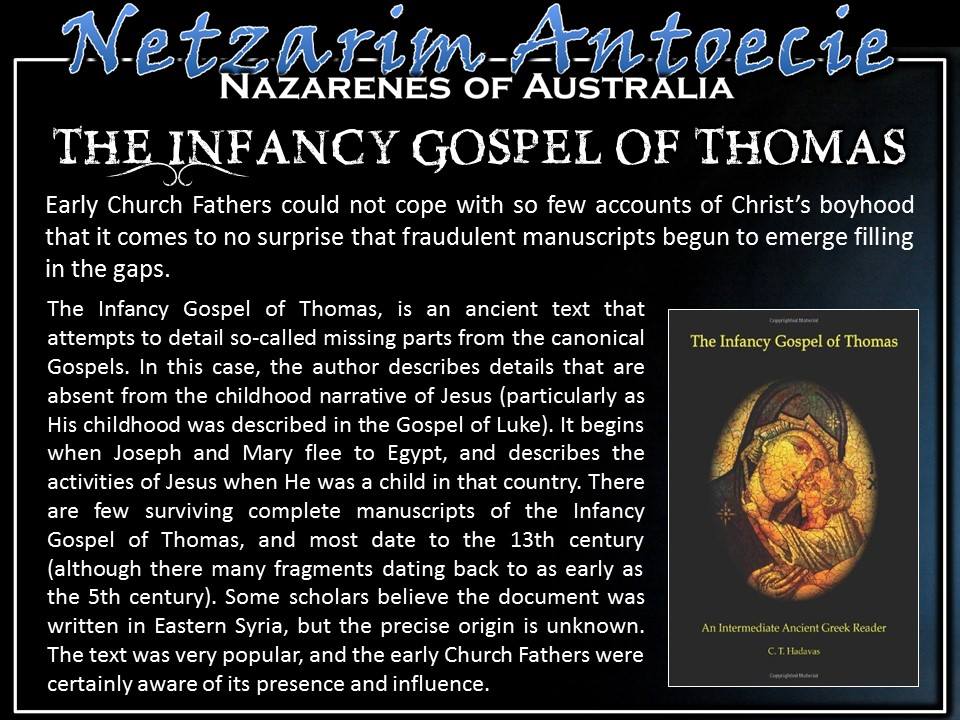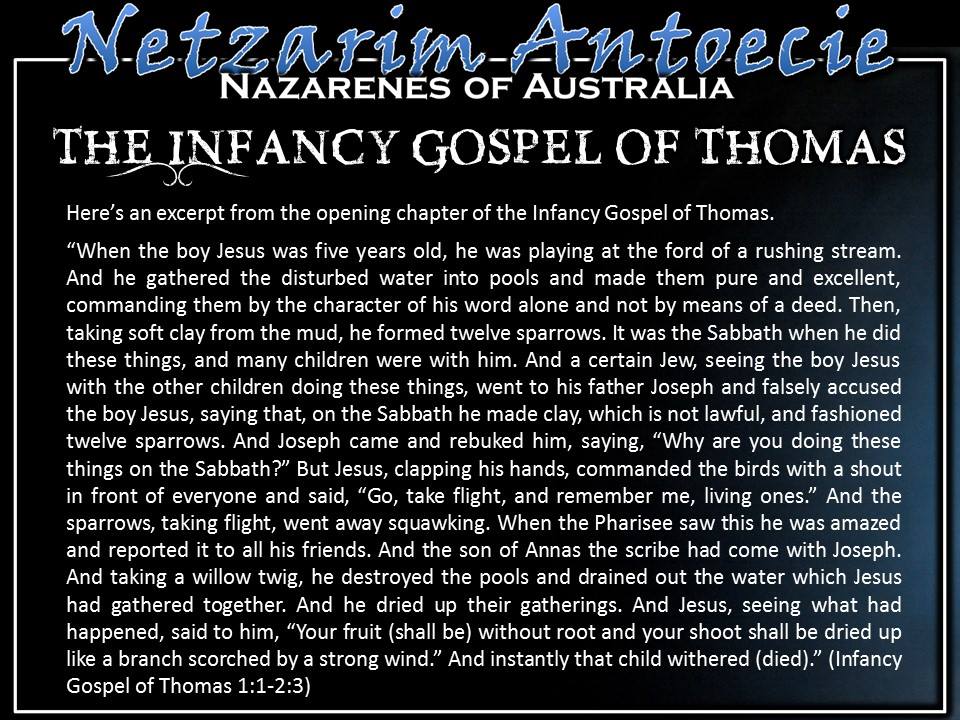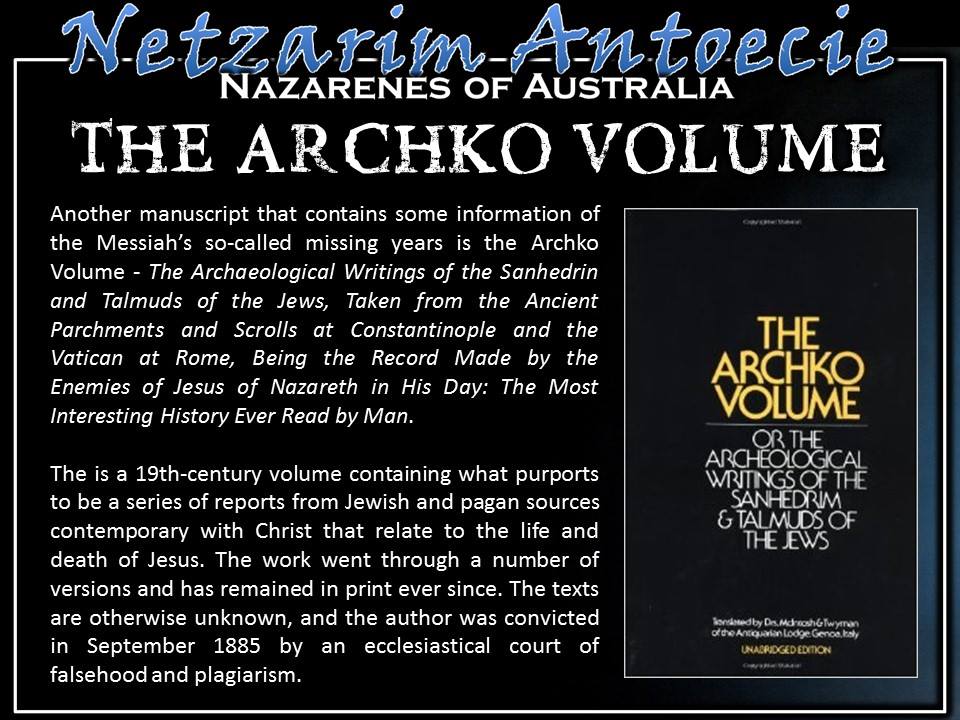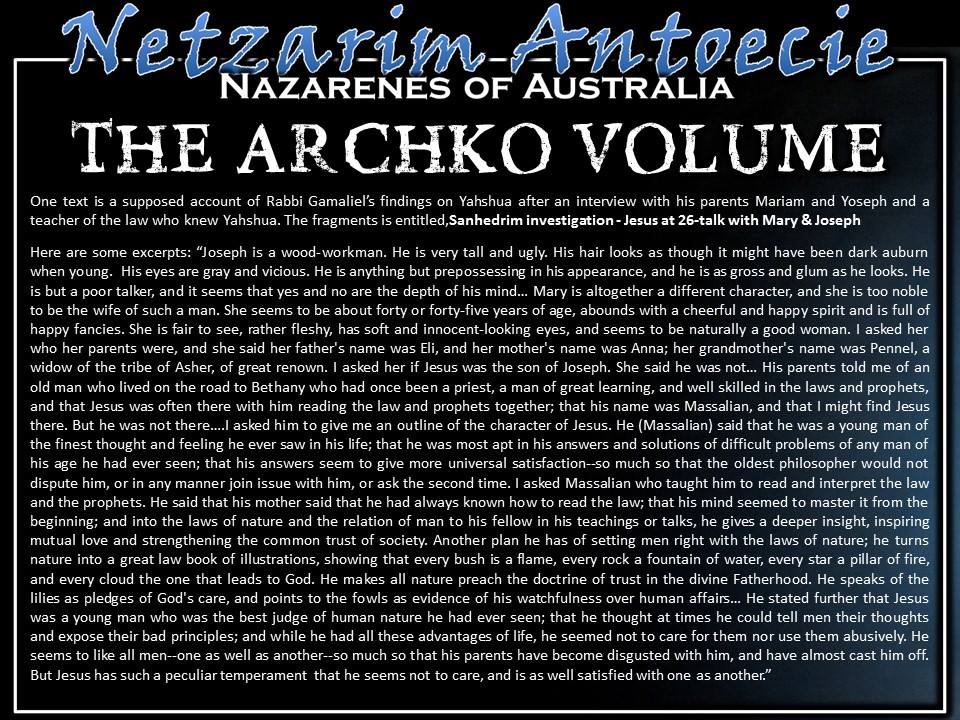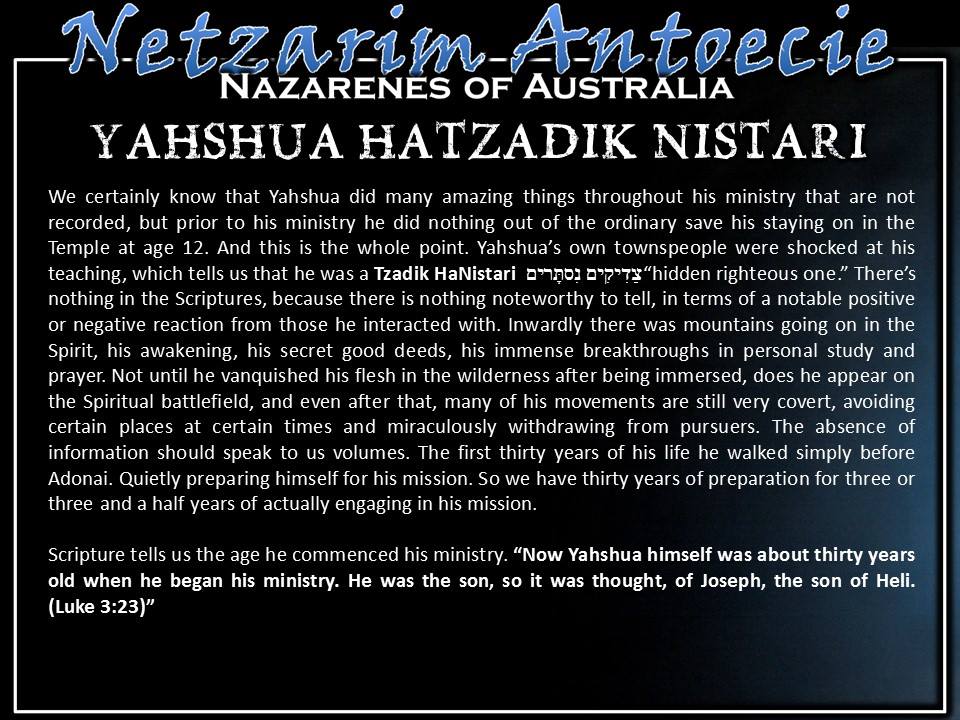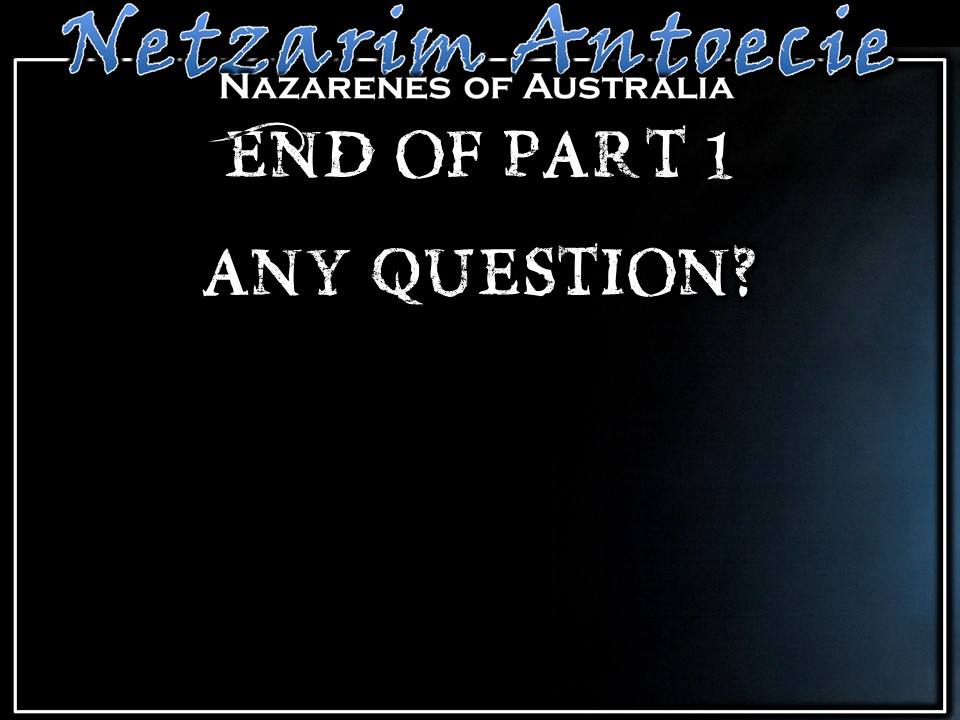Who is the Messiah? - Part 3
Solitary Refinement
Video Teaching
Study Notes and Slides
(Slide) In part 1 we looked at how Messiah fulfilled the prophecy of the shoot that would rise from the stump of Jessy fulfilling the prophecy in Jeremiah 23. “Behold, the days come, says Yahweh, that I will raise up from David a righteous Branch, and a King shall reign and prosper, and shall execute judgment and justice in the earth. (Jeremiah 23:5)”
We looked at the prophetic meaning of his name, being Yah’s salvation that we have cried out for. In Hebrew thought, the name of something always embodies its character and mission and the Son’s name shouldn’t be that greater mystery, but it is. We saw that his name matters. Even in the Tanach, Solomon (Shlomo HaMelech) challenges us to know the Son’s name. “He said to me: ‘Who went up to Heaven and came down, and who is holding the wind in his palms? Who has bound the waters in a napkin and who has established all the ends of the Earth? What is his Name, and what is his Son's Name, if you know? (Proverbs 30:4)’”
We looked at how Yahshua is the embodiment of the Torah. “The Word became flesh and made his dwelling among us. We have seen his glory, the glory of the one and only Son, who came from the Father, full of grace and truth. (John 1:14)” We looked at how Yahshua is also the testimony, in that his life and mission are a testimony that we cleave to. “Then the dragon was enraged at the woman and went off to wage war against the rest of her offspring--those who keep Elohim's commands and hold fast their testimony about Yahshua. (Revelations 12:17)” The difference between the Torah and the Testimony is that the Torah is instruction and the Testimony is the experience of that instruction.
We looked at how he is the embodiment of Israel and how Israel is the embodiment of him with regard to both Israel and Messiah both being referred to as Yah’s first born son. “(Yahshua and his parents) stayed (in Egypt) until the death of Herod. And so was fulfilled what the Adonai had said through the prophet: ‘Out of Egypt I called my son.’ (Matthew 2:15)” “When Israel was a child, I loved him, and out of Egypt I called my son. (Hosea 11:1)” Together with Yahweh we are all echad with Yahshua in that compound unity, that complete inseparable wholeness. Echad, which we translate as “one” means a two or more individuals acting as if they are one individual in every conceivable way. Does this mean that attaining this state forfeits our personality? No more than a big toe can become a right eye and vice-versa. In other words, just as there is a diversity in the human anatomy, so to there is a diversity in the body of Moshiach, but all work in complete harmony.
In Part 2 we saw how Yahshua’s parents took great pains to keep him concealed before his ministry, and how even after his ministry commenced that there were things he didn’t do. Thus teaching us that there is a level of covertness and discernment that we should maintain in our ministry, moving in accordance with the Ruach, which sometimes reveals us and sometimes conceals us. This is why Yahshua says, “Behold, I’m sending you forth as sheep in the midst of wolves: therefore be as wise as serpents, and harmless as doves. (Matthew 10:16)”
We looked at how he is Moshiach, the anointed one, who is capable of such a great and thorough rescue from sin and death. The concept of an “anointed” or “consecrated one” signifies Yahweh’s special seal of authorisation, separating one from his own desires to do His will. An anointed one carries Yahweh’s Divine emblem.
We learnt how the term Moshiach carries the root word Moshe, meaning “to be drawn from,” specifically from the Father’s bosom. Messiah was in the bosom of the Father as it says, “No man has seen Elohim at any time, the only begotten Son, which is in the bosom of the Father, he has declared him. (John 1:18)” This use of a specific part of the anatomy denotes that Yahshua came from the heart and was extended out from the Father as His right arm. “Elohim exalted him to his own right hand as Prince and Saviour that he might bring Israel to repentance and forgive their sins. (Acts 5:31)” In other words, Yahweh has His whole heart are set on us and is using His best means, his own right arm to save us.
We looked at how Yahweh used John (Yochannan) to cultivate the hearts of the masses, preparing souls for the coming of the Deliverer. We looked at Yahshua’s first act of ministry, immersing himself in a gathering of living waters (a mikvah). We learnt quite a bit about a mikvah’s significance and its various applications. Both teachings are available on our website, including video, PowerPoints shows and text format.
The Ruach HaKodesh
(Slide) Once immersed, Yahshua receives the anointing of the Ruach HaKodesh and following this an audible testimony to Yahshua’s identity emanates from the sky. “…and the Ruach HaKodesh descended on him in bodily form like a dove. And a voice came from heaven: "You are my Son, whom I love; with you I am well pleased. (Luke 3:22)”
What’s interesting is the apparent lack of astonishment by any onlookers at the incident. Two anomalies took place. One is the physical manifestation of the Ruach HaKodesh and the other was an audible voice from heaven. We know that Yochannan was present and that the two manifestations were to confirm to him that Yahshua was the Messiah. “I didn't recognise him, but I came immersing with water so that he might be revealed to Israel. And Yochannan gave this testimony, saying, ‘I saw the Ruach descending from heaven like a dove, and it abode upon him. (John 1:31-32)’”
(Slide) Yochannan’s water ministry was designed to identify the Messiah. In other words, he knew that eventually someone was going to be immersed by him who would receive a visible manifestation of the Ruach and an audible confirmation from heaven.
(Slide) Considering the lack of awe from any onlookers, it is reasonable to assume that the audible voice from heaven could have been a “bat kol.” A bat kol is a low level form of Divine Inspiration. It literally means the "daughter of a voice" [or understood as an "echo"]. Normally, a bat kol was only heard by tzaddikim, who were otherwise worthy of prophecy. Nevertheless, when the situation demanded it, it could even be heard by gentiles. In many cases, it was heard by everyone worthy, but in others, it was only heard by a single individual. The bat kol was heard until the Sanhedrin ceased to function (around 361 CE). In Jewish literature the bat kol is often referred to as having “the the voice of a dove.” So the manifestation of a dove descending is possibly visible speech. In other words, fiery Hebrew letters clustered together and fluttering down like a dove emanating with a bat kol.
The Children of Israel often saw the sound of Elohim’s voice. "And all the nation saw the voices and the torches and the voice of the horn. (Exodus 20:14)” In The Book of Revelation, we also find John seeing the sound of a voice. “Then I turned to see the voice that was speaking with me. And having turned I saw seven golden menorot. (Revelations 1:12)”
(Slide) A bat kol is like a voice heard in the mind. Although it sometimes sounds like a voice from heaven, it is a prophetic, rather than a physical voice, and it is only heard by those for whom it is intended. Regarding the bat kol it is written, "Your ears shall hear a voice behind you. (Isaiah 30:21)” In the Talmud a bat kol is mentioned as complaining like a dove in the ears of a rabbi walking through the ruins of Jerusalem saying: “Wo to the children, because of whose sins I have destroyed my house” – Tractate Berakoth. 3a
The voice of Elohim without the filter of the echo causes trauma and death to a hearer. “ And all the people saw the thunder and the lightning and the noise of the trumpet and the mountain smoking; and when the people saw it, they trembled and stood afar off. Then they said to Moshe, "Speak to us yourself and we will listen. But do not have Elohim speak to us or we will die." (Exodus 20:18)” In order that people not be killed, the bat kol was required. Whenever the voice of Yahweh is heard and there is no physical harm, it’s reasonable to assume it is a bath ḳōl. In the era of the prophets the bat kol was almost non-existent, becaue the Na’avi was Yah’s mouth-piece, but as prophecy departed the Ruach HaKodesh manifest with the bat kol became widespread.
(Slide) In the account of the fulfilment of the latter rain prophecy of Joel 2:28-32 in chapter 2 of Book of Acts we see the Ruach being poured out, resembling tongues of fire. “Suddenly a sound like the blowing of a violent wind came from heaven and filled the whole house where they were sitting. They saw what seemed to be tongues of fire that separated and came to rest on each of them. (Acts 2:2-3)” The “tongues of fire” is a direct reference to Hebrew letters. At this time the talmidim of Yahshua begun to speak of the testimony of Yahshua in languages they did not know. Again, the audible nature of what occurs has a visible manifestation. More than likely, the dove, was “black fire on white fire,” yet another expression of the Hebrew language fluttering in a cluster of Hebrew letters resembling the movement of a dove.
(Slide) So what is the Ruach HaKodesh? Is it a person, one of a triune G-dhead, or is it the Holy Ghost?
(Slide) Ruach simply means “breath.” Dishonest scribes have mystified it by applying ecclesiastical terminology to it with the word “spirit.” They did the same with the term “angel” instead of messenger, “apostle” instead of sent-one, “holy” instead of set-apart and “church” instead of gathering and they did it to many more terms to wrestle meanings away from original context.
The Ruach is literally Yahweh Elohim’s breath that is a Divine force that gives life to all things. The ant crawls and the earth rotates by every life-giving exhale of Yahweh’s breath. The Encyclopaedia of Judaica says that “the most noticeable difference between sentient beings and dead things, between the living and the dead, is in the breath. Whatever lives breathes; whatever is dead does not breathe.”
Although Elohim created man to live on a physical plane, He did not close off the spiritual completely. Yahweh arranged creation so that even while in the physical world, man would be able to open a door to the spiritual and experience the Divine. This would constitute the highest perfection that a mortal human can attain. “Do not get drunk on wine, which leads to debauchery. Instead, be filled with the Spirit. (Ephesians 5:18). “…in order that the righteous requirement of the law might be fully met in us, who do not live according to the flesh but according to the Spirit. (Romans 8:4)”
(Slide) The Ruach HaKodesh is the actuator that triggers or “quickens” Divine prophecy and wisdom. It is that Divine force that causes Yahweh to directly influence everything in the universe. By the Ruach, an attribute of Yahweh, maintains creation from moment to moment. The Father is constantly breathing life into existence. “The Spirit gives life; the flesh counts for nothing. The words I have spoken to you--they are full of the Spirit and life. (John 6:63)” The Ruach HaKodesh is a higher form of this breath, an overriding power that contains a more concentrated awareness of the Father. The Hebrew word Ruach is used 389 times in the Hebrew Scriptures. What do the Nazarene Writings and the Talmud have in common? They both use the expression “Ruach HaKodesh.” The Ruach HaKodesh is never mentioned by name in the Torah. In fact, it’s not until half-way through the Scriptures until it is mentioned. It is first mentioned in Psalm 51:11 and then only used twice in the Book Of Isaiah (Isaiah 63:10,11). The more usual expression for Holy Spirit in the Tanach is “Spirit of Elohim” or “Spirit of Yahweh.”
(Slide) Though the Ruach is sometimes assigned a male gender it is not considered a person. The Shekinah is sometimes assigned a female gender, but it is not considered to be a female person. The Shekinah is a comforting manifestation of the Ruach. It is that part of the Ruach that has gone into exile with Israel and gives us hope during hardships.
How does one obtain the Ruach HaKodesh? There are ten steps a person must go through before attainment of the Ruach HaKodesh. (Click through) They are:
1. Constant study and observance of the teachings of the Torah (Torah)
2. Scrupulous care not to violate a single law (care; zehirut)
3. Constant diligence to fulfill every commandment (diligence; zerizut)
4. Living completely free of sin, in thought and in deed (cleanliness; nekiut)
5. Avoiding even the permissible when it may lead to wrong (abstinence; perishut)
6. Purifying oneself of all sin, both past and present (purification; tahora)
7. Dedication to Elohim, far beyond the call of the Law (piety; chasidut)
8. Absolute negation of the self (humility; anava)
9. Loving Elohim so much as to dread all sin and evil (fear of sin; yirat chet)
10. Total negation of the worldly (holiness; kedushah)
(Slide) On occasion, the Ruach can come upon a person on occasion without all of the afore mentioned steps or without the act of deep spiritual meditation. Incessant and fervent study of the Torah alone can induce this state. It can also be attained through deep meditation in fixed prayer. It can also come automatically through a great act of faith, or from the observance of a commandment executed through pure joy.
King David was able to rouse the Ruach through music.
(Slide) Once a person had completed all these steps, he was then ready to engage in the exercises of meditation (hit'bod'edut) that were used to attain the Divine inspiration of the Ruach HaKodesh. These exercises would consist of the contemplation of Divine names, as well as the chanting of psalms and prayers. The purpose of these exercises was to totally isolate the mind, both from external stimuli and internal thought, leaving it perfectly clear to receive the divine influx.
This is why immediately following his immersion and confirmation, Yahshua is taken by the Ruach into isolation for a period of time. Yahshua, full of the Ruach HaKodesh, left the Yarden and was led by the Ruach into a solitary place. (Luke 4:1)”
(Slide) Some Gospel accounts say that he was taken away to be tempted by HaSatan. Others say he was ministered to by angels and that his temptations came at the close of his 40 day fasting and seclusion when he became very hungry. Rather, his 40 day isolation was filled with deep meditation to prepare him for his time of tempting at the conclusion of this time.
“Then Yahshua was led by the Ruach into the wilderness to be tempted by the HaSatan. After fasting forty days and forty nights, he was hungry. The tempter came to him and said, "If you are the Son of Elohim, tell these stones to become bread. (Matthew 4:1-3)”
After refusing HaSatan at all the chief points of entry that are exploited by the enemy, temptations and cravings of the flesh (in the form of sating hunger) wealth, and power, the Accuser departs until another opportune time. After his departure, Yahshua is then ministered to by messengers from Heaven. “Then the devil left him, and messengers (angels) came and attended him. (Matthew 4:11)”
(Slide) But what happened during these forty days?
(Slide) Answer: Everything that happened to the Children of Israel in the desert for 40 years, happened to Yahshua in 40 days. He was in a human body, an organic tomb, a weak flesh-bag. As we read through the Torah and we see hardships buffet the nation and how Yahweh literally trims back those parts of the multitude that are weak, lazy, stubborn, arrogant, fool hardy, half-cocked, ignorant, impatient, selfish, frightened, frustrated, haughty, headstrong, lust filled, forgetful, disrespectful, unappreciative, angry and obstinate, Yahshua is trimming away those parts of himself that that are prone to the same sin of the first humans. To avoid food for forty days, brings a person very near to death. You can’t go much longer than forty days without food before it begins to cause irreparable damage to the body. Yahshua took his mind and made it superior to all his other organs. The brain should say to the tongue, “I’m in charge” and the heart “I’m in charge” and all his members, “I’m in charge!”
A mind of one entirely resolved to serve Messiah with his entire being, needs to be removed from everything for a time. Whether it’s for 40 seconds, 40 minutes or 40 years. What’s the significance of 40?
(Slide) The number 40 represents transition or change; the concept of renewal; a new beginning. The number 40 has the power to lift a spiritual state. Consider: When a person becomes ritually impure, he must immerse in a ritual bath, a mikveh. The Talmud tells us that a mikveh must be filled with 40 se'ahs (a measure of water). Immersion in a mikveh is the consummate Jewish symbol of spiritual renewal. It is no accident that in the story of Noah, the rain poured for 40 days, and submerged the world in water. Just as a person leaves a mikveh pure, so too when the waters of the flood subsided, the world was purified from the licentiousness which had corrupted it in the days of Noah. Moshe was on Mt. Sinai for 40 days and came down with the stone tablets. The Jews arrived at Mt. Sinai as a nation of Egyptian slaves, but after 40 days they were transformed into Elohim's nation.
It takes 40 days for an embryo to be formed in its mother's womb. 40 represents the four sides of the world, each side containing the ten Sefirot (esoteric powers).
(Slide) Many times in Rebbe Yahshua’s ministry we find him removed from people, in a quiet solitary place, alone with Yahweh, deeply immersed in concentrated prayer. “But Yahshua often withdrew to lonely places and prayed (Luke 5:16)”
The act of hit'bod'edut was a constant feature of Yahshua’s life and ministry. The portion of time he spent in isolation far outweighed the time he spent in anyone’s company. “It was at this time that He went off to the mountain to pray, and He (Yahshua) spent the whole night in prayer to Elohim. (Luke 6:12)”
“After He had sent the crowds away, He went up on the mountain by Himself to pray; and when it was evening, He was there alone. (Matthew 14:23)”
Think about it, for 29 years Yahshua grew up in virtual obscurity, preparing for what was all of 1 to 2 ½ or 3 ½ years of ministry - depending on your view. The ratio of prep far exceeds the ratio of actual execution of a task.
(Slide) Even before his crucifixion we find him in isolation, praying for so long that his own talmidim fall asleep. “Then Yahshua came with them to a place called Gethsemane, and said to His talmidim, ‘Sit here while I go over there and pray. (Matthew 26:36)’” He prays for 1 hour, takes a break, prays again and takes another break and prays for a third time before alerting his talmidim of his betrayal and capture. It’s reasonable to assume that during this time Yahshua prays for approximately three hours on his own.
(Slide) Much of what we know of the concept of hitbodedút “self-seclusion,” comes to us from Rabbi Nachman of Breslov from around the time of the 1700s. But hitbodedút goes all the way back to the time of Avraham, who stood by night gazing at the stars in complete isolation, tending his sheep. This is why the profession of shepherd was so prized by Torah Scholars, because it provided an income and also required them to spend many, many hours, days and weeks away from any type of human contact.
Hitbodedút refers to an unstructured, spontaneous and individualised form of prayer and meditation that is not meant to replaced fixed prayer, but supplement it. It was said by Rabbi Nachman that it is best observed in one’s mother’s own tongue, meaning that is to be engaged in one’s native language rather than strictly Hebrew. Rebbe Nachman's religious philosophy revolved around closeness to Elohim and speaking to Elohim in normal conversation “as you would with a best friend.” We see Yahshua very much engaged in this type of no ritual prayer before his crucifixion, travailing in the Spirit.
(Slide) The best place to do hitbodedut was in a field or forest, among the natural works of Elohim's creation. But failing this, one can use an empty room to perform self-seclusion. “But when you pray, go into your room, close the door and pray to your Father, who is unseen. Then your Father, who sees what is done in secret, will reward you. (Matthew 6:6)”
Why is hitbodedut so important? Yahweh seeks open and honest communication and the best way for this to occur is when one is alone, unhindered by the temptation to posture prayer for anyone nearby. If one is engaged in public prayer, such as in a large gathering at the Western Wall, it is traditional to speak no more than above a whisper, so the words spoken are only heard by the one who is praying. "When you pray, you are not to be like the hypocrites; for they love to stand and pray in the synagogues and on the street corners so that they may be seen by men. Truly I say to you, they have their reward in full. (Matthew 6:5)”
Encouragement and compliments on the elegance of another’s prayer endangers the recipient by inhibiting his reward to be confined to the earthly realm rather than allowing his Heavenly treasury to be added to.
(Slide) Yahshua spent time surrendering his own will. He had a body at this time like we do now and it takes time to unload our own will and clear our minds. But when we do we can more understand Yahshua’s mindset when he spoke the words, “I can do nothing on My own initiative. As I hear, I judge; and My judgment is just, because I do not seek My own will, but the will of Him who sent Me. (John 5:30)”
A believer should find time each day to hide himself away from the distractions of the world and commune with the Father in deep reflective prayer. Yahshua did this and we should certainly considering doing so ourselves.
(Slide) Yahshua became a human being. He was fully man, known in Hebrew as the בן–אדם, ben-'adam. So if he was human, he was comprised of a form that contains the knowledge to do good and evil, a yetza hara and a yetza hatov, a form of evil and a form of good. He needed to bring his body into full submission, depriving it of food and all human contact. His time out in the wilderness was more of an ordeal than his crucifixion, how many of you know it! His actions out there were more critical, because it cemented his resolve out there. HaSatan gave him everything a man can be offered in this world. In comparison, a beating and a hanging from a tree was a walk in the park. The shame he stood to bear if he failed over the physical agony of the execution tree doesn’t compare. You now shame is the most painful thing a human being can bear. Yes he experience shame on the tree, but it wasn’t his own shame. It was ours.
Messiah is the son of man.

























